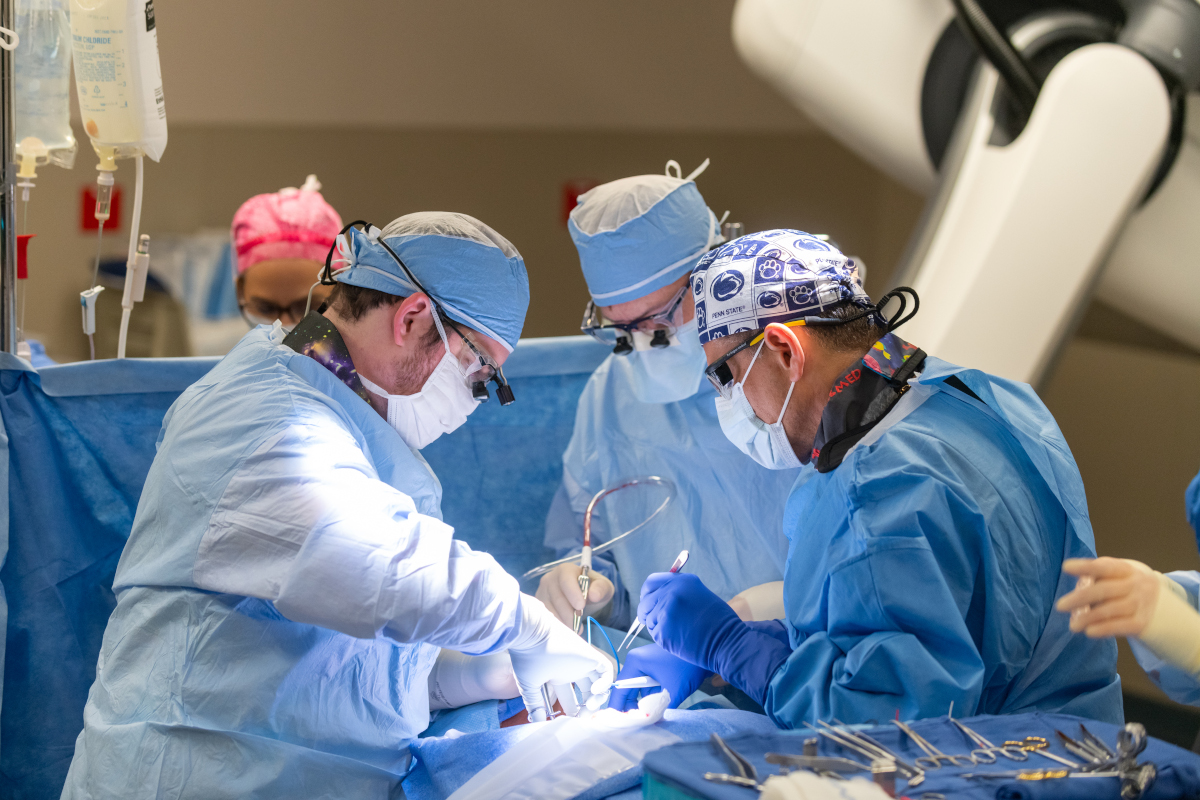Penn State Health completes 300th TCAR procedure for carotid artery disease

Minimally invasive procedure reduces risk of future stroke
Penn State Health recently completed its 300th transcarotid artery revascularization (TCAR) procedure. The achievement comes as the health system also marks the first TCAR procedure performed at Lancaster Medical Center, signaling a dedication to expanding access to state-of-the-art vascular surgery options for patients in the Lancaster region.
TCAR is a minimally invasive surgical procedure to treat carotid artery disease and help prevent future strokes. During the procedure, blood flow in the carotid artery is temporarily reversed to reroute blood and debris away from the brain and into a filter, ensuring only clean blood returns to the body. This method uses smaller incisions, requires less anesthesia and allows for faster recovery than traditional surgery.
“We are proud to have a team of dedicated surgeons to offer the full spectrum of treatments in vascular disease,” said Dr. Faisal Aziz, chief of the Division of Vascular Surgery at Penn State Heart and Vascular Institute. “This milestone reflects not only our growth as a health system, but also our commitment to bringing advanced care closer to the communities we serve.”
Lancaster Medical Center, which opened in 2022, has quickly established itself as a leading provider of specialized care, with a focus on expanding treatment options for complex conditions. The center’s recent addition of TCAR to its surgical offerings demonstrates Penn State Health’s ongoing dedication to equipping its facilities with the latest in patient-centered care.
Penn State Health’s Milton S. Hershey Medical Center, Holy Spirit Medical Center, Lancaster Medical Center and St. Joseph Medical Center all offer TCAR. Additionally, through a partnership with Mount Nittany Health, Penn State Health physicians perform TCAR at Mount Nittany Medical Center in Centre County.
Learn more about carotid artery disease and its treatment at Penn State Health here.
If you're having trouble accessing this content, or would like it in another format, please email Penn State Health Marketing & Communications.
